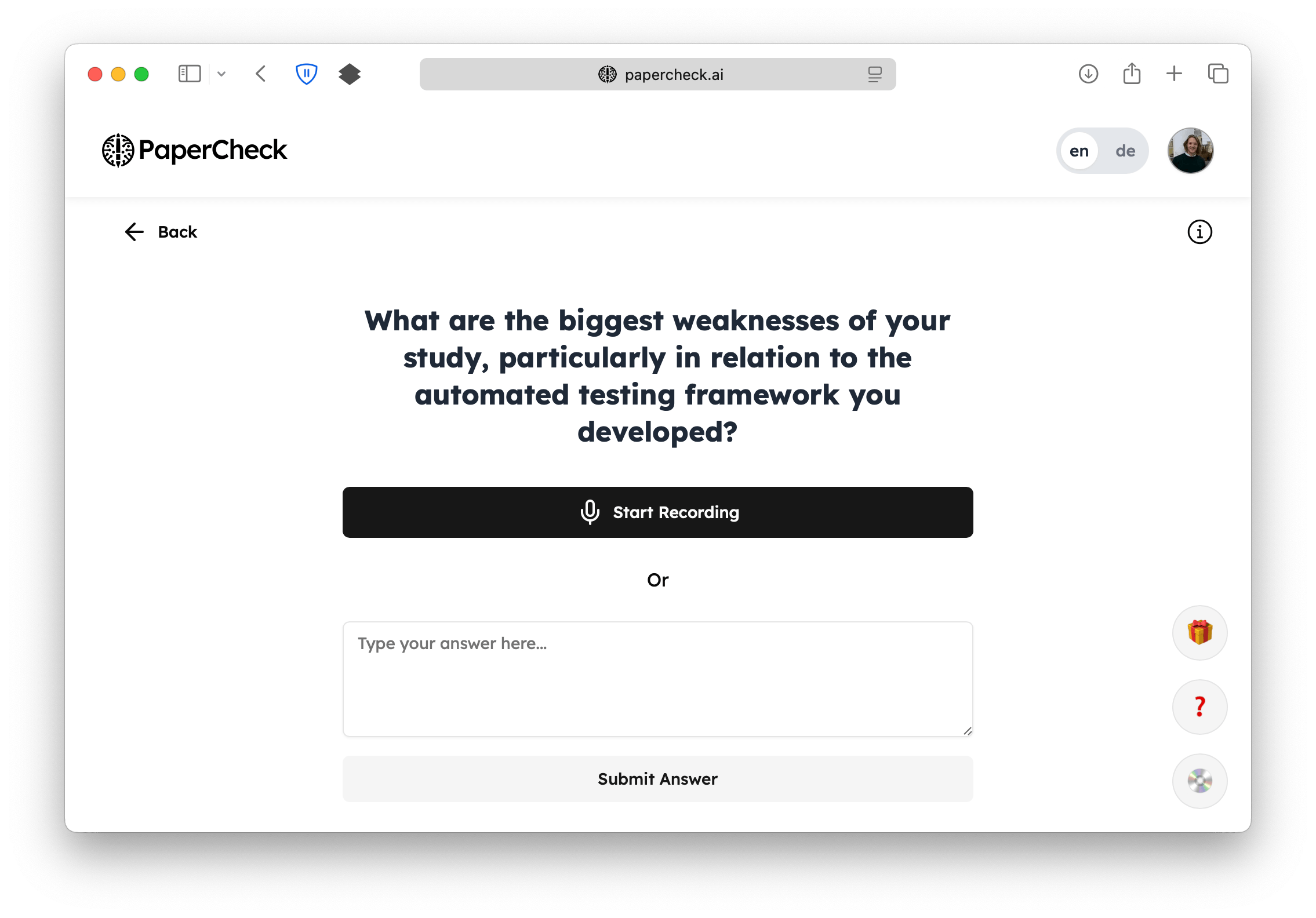How to Prepare for Your Master’s Thesis Defense (And How AI Can Help)
If you're reading this, you're probably feeling stuck or unsure about your upcoming thesis defense. You're not alone. Many master's students feel this way. The good news? With the right preparation and tools, you can walk into that room feeling confident.
 The moment of truth (Photo by Herlambang Tinasih Gusti @tinasihgusti on Unsplash)
The moment of truth (Photo by Herlambang Tinasih Gusti @tinasihgusti on Unsplash)
Below is a simple guide to help you understand the defense process and how to use AI tools like PaperCheck's to get ready.
1. Understand What’s Being Tested
Your thesis defense is not just about your research. It’s about you. The examiners want to see how you present, explain, and respond to feedback. They are testing your ability to act like a professional academic.
They already believe your research is good enough. That’s why you were invited to the defense. What they want to see now is your thinking. Can you explain your ideas? Can you handle tough questions? Can you stand by your work? Focus on highlighting the core information.
2. Know Your Work Deeply
You must know your thesis inside and out. That includes your topic, theories, methods, and what the literature says. Don’t just review what you wrote a year ago. Check if there are new studies or theories since you started. Update your understanding.
Go through each part of your work and ask: Why did I do this? What does this mean? What might someone ask about this?
3. Know the Room
Find out how your defense will work. Will it be in person or online? How long will it be? Who will be there? Will there be a presentation? Will your supervisor attend? You can as well attend other thesis defenses to get the picture what happens.
Try to learn about your examiners. What have they written about? What are their views? This can help you guess the kind of questions they might ask.
4. Face Your Weaknesses
Every project has weak points. You need to know yours before someone else points them out.
Take a break from your thesis. Then come back and read it with a red pen or loudly. Mark anything that feels unclear, weak, or confusing. Write these points down. Then write answers to each one. Why is this okay? What were your limits? How does it still add value?
This makes sure you’re not surprised during the defense.
5. Use the "Yes, But" Method
When you get a tough question, don’t panic. Say: "Yes, that’s a good point. But here’s why I made that choice."
The "but" is your chance to explain a decision, not avoid a flaw. It shows that you thought about the issue, accepted its limits, and made a smart trade-off based on your goals, time, or resources.
This shows you are thoughtful, prepared, and not caught off guard by criticism. You’re showing that you thought about them and had good reasons.
6. Invest in Your Presentation
If slides are required, keep them simple. Use visuals or short points never full paragraphs.
Practice delivering your presentation out loud and time yourself to ensure you stay within the expected limit. Each slide should support what you're saying, not repeat it word-for-word. Avoid reading directly from the slides.
Your voice, explanations, and presence are what the examiners are assessing. You should be the center of attention—not your slide deck.
7. Lastly, Use AI to Prepare Smarter
AI tools like PaperCheck can help a lot:
-
Predicted defense questions: Based on your actual thesis content, PaperCheck uses AI to suggest likely questions you could be asked during your defense.
-
Mock response practice: You can speak your answer out loud, and the tool records and gives feedback on your clarity, confidence, and academic tone.
 Screenshot of PaperCheck Defense Recording Page
Screenshot of PaperCheck Defense Recording Page
Think of PaperCheck as a smart assistant trained on academic work. It helps you prepare for real questions and refine how you speak about your thesis not just how you write about it.
Defense is not about perfection. It’s about preparation. Be ready to explain, to defend, and to show you understand your work. With the right mindset and support from tools like PaperCheck, you can go in with confidence. You’ve done the hard work. Now finish strong.
Disclaimer: This guide shares general advice based on widely observed practices. Keep in mind that thesis defense formats differ by institution, department, and country. Be sure to confirm the exact expectations with your supervisor or academic office.
From Gerald, 28th June 2025